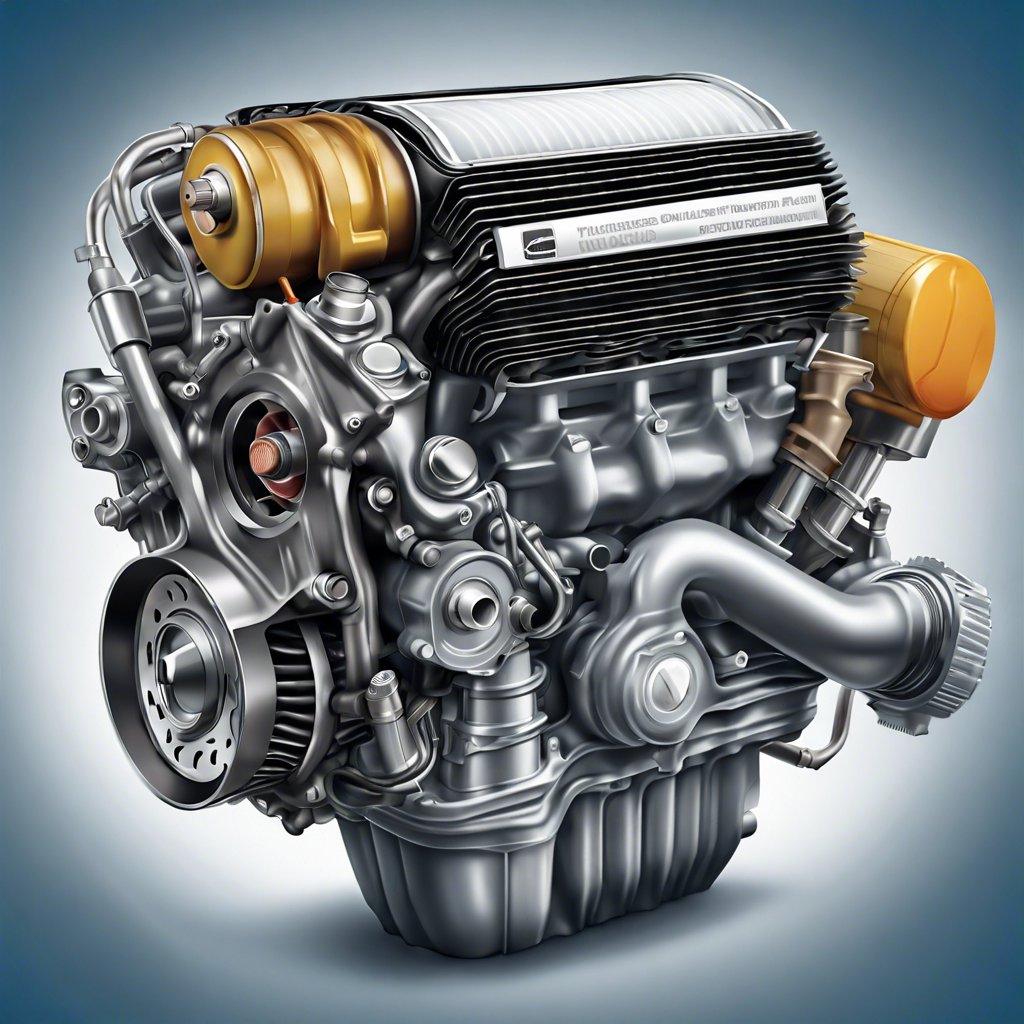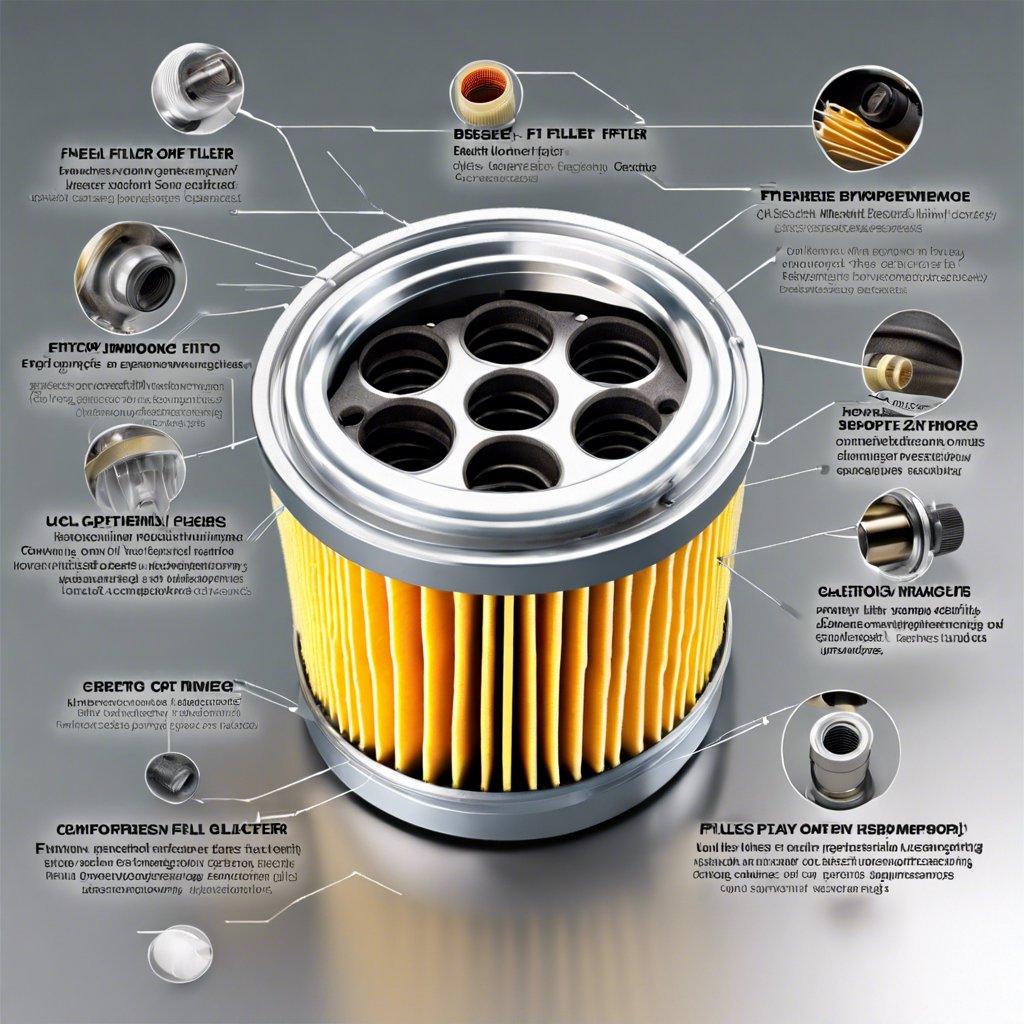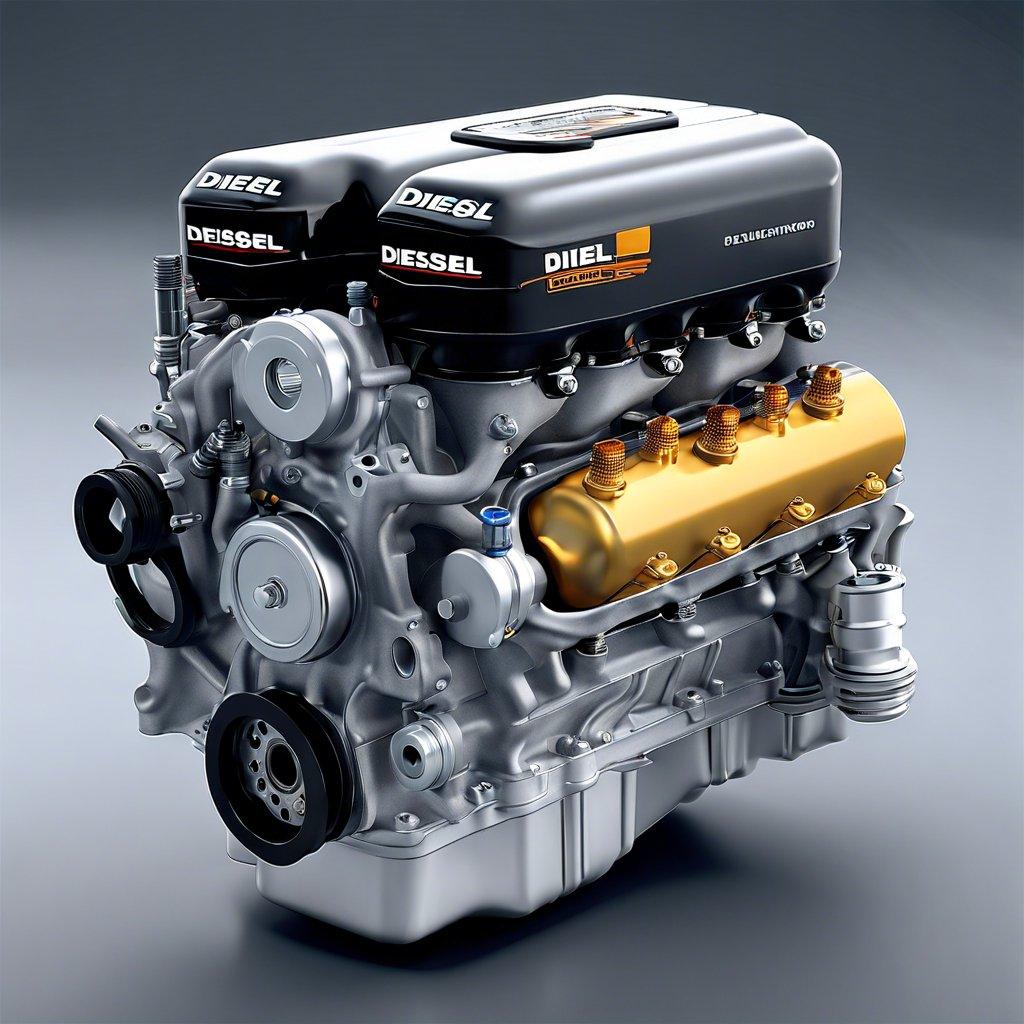Understanding the Cost Factors of Changing Your Fuel Filter
Unraveling the Financial Implications of Fuel Filter Replacement

As an engineering or technology professional, understanding the cost factors associated with fuel filter replacement is crucial for effective fleet management and maintenance planning. This comprehensive guide will delve into the various elements that contribute to the financial implications of this essential vehicle maintenance task.
The Fuel Filter: A Critical Component
The fuel filter plays a vital role in ensuring the efficient and reliable operation of your vehicle’s engine. By removing impurities and contaminants from the fuel, the filter helps to prevent costly damage to the fuel system and engine components. Neglecting to replace the fuel filter at the recommended intervals can lead to a gradual decline in engine performance, reduced fuel efficiency, and even complete engine failure.
Direct Costs of Fuel Filter Replacement
Parts Cost: The primary direct cost of fuel filter replacement is the cost of the replacement part itself. Fuel filters can range in price from $10 to $100 or more, depending on the make, model, and specifications of your vehicle.
Labor Cost: In addition to the parts cost, you must factor in the labor cost associated with the replacement process. Depending on the complexity of the installation and the hourly rates of your preferred service provider, labor costs can range from $50 to $150 or more.
Indirect Costs of Neglecting Fuel Filter Replacement
While the direct costs of fuel filter replacement are straightforward, the indirect costs of neglecting this maintenance task can be far more significant. These indirect costs include:
- Reduced Fuel Efficiency: A clogged or dirty fuel filter can restrict fuel flow, leading to a decrease in fuel efficiency and higher fuel consumption.
- Engine Damage: Contaminants in the fuel can cause wear and tear on the fuel pump, injectors, and other engine components, leading to expensive repairs or even complete engine replacement.
- Increased Downtime: Unscheduled vehicle breakdowns due to fuel filter-related issues can result in lost productivity, missed deadlines, and additional costs associated with towing and rental vehicles.
Proactive Maintenance: The Key to Cost Savings
To minimize the financial impact of fuel filter replacement, it is essential to adhere to the manufacturer’s recommended maintenance schedule. By replacing the fuel filter at the appropriate intervals, you can:
- Maintain optimal engine performance and fuel efficiency
- Prevent costly repairs and downtime
- Extend the lifespan of your vehicle’s fuel system and engine components
Fuel filter replacement may seem like a mundane maintenance task, but it can have a significant impact on the financial health of your fleet or vehicle. By understanding the direct and indirect costs associated with this process, you can make informed decisions and implement proactive maintenance strategies to optimize your overall operating expenses.
Remember, regular fuel filter replacement is a small investment that can pay dividends in the long run by preserving the integrity of your vehicle’s fuel system and engine, ultimately contributing to the overall cost-effectiveness of your engineering or technology operations.
As an engineering or technology professional, understanding the cost factors associated with changing your fuel filter is crucial for making informed decisions and budgeting effectively. In this comprehensive guide, we will explore the various elements that contribute to the overall expense of upgrading your fuel filter, helping you navigate the cost landscape with confidence.
Vehicle Make, Model, and Year
One of the primary factors that can impact the cost of a fuel filter replacement is the specific make, model, and year of your vehicle. Newer or more advanced vehicles may require specialized filters that are more expensive than their counterparts in older or simpler models. Additionally, the accessibility and availability of the fuel filter can also influence the labor costs associated with the replacement.
Filter Type and Quality
The type and quality of the replacement fuel filter can significantly affect the cost. Premium filters, which often provide enhanced filtration and longer service life, may carry a higher price tag than standard or generic options. Factors such as the filter’s material composition, flow rate, and filtration efficiency can all contribute to the overall cost.
Labor Costs
The labor costs associated with changing a fuel filter can vary widely depending on several factors, including the complexity of the vehicle’s design, the accessibility of the filter, and the mechanic’s hourly rate. In some cases, the labor costs may exceed the price of the filter itself, particularly if the replacement requires specialized tools or extensive disassembly of the vehicle’s components.
Disposal Fees
When replacing a fuel filter, it’s important to consider the costs associated with the proper disposal of the old filter. Many service centers or mechanics may charge a small fee to cover the cost of hazardous waste disposal, which is an essential step in ensuring environmentally responsible practices.
Additional Considerations
- Location and Mechanic Expertise: The geographic region and the expertise of the mechanic or service center can also impact the overall cost of the fuel filter replacement.
- Frequency of Replacement: Regularly maintaining your fuel filter, as recommended by the manufacturer, can help prevent more costly issues down the line and may be a worthwhile investment.
- Preventive Maintenance: Addressing fuel filter issues promptly can help avoid more significant problems, such as fuel system damage, which can lead to even greater repair expenses.
| Cost Factor | Potential Impact |
|---|---|
| Vehicle Make, Model, and Year | Specialized filters, accessibility, and labor costs |
| Filter Type and Quality | Premium filters vs. standard/generic options |
| Labor Costs | Complexity of replacement, mechanic hourly rate |
| Disposal Fees | Hazardous waste disposal requirements |
| Location and Mechanic Expertise | Regional pricing variations, specialized skills |
By understanding these key cost factors, engineering and technology professionals can make informed decisions when it comes to upgrading their fuel filters, ensuring they achieve the best value and minimize the impact on their budgets.
Optimizing Expenditure: A Comprehensive Guide to Fuel Filter Change Budgeting
Factors Influencing Fuel Filter Change Costs
Changing your fuel filter is a crucial maintenance task, but the associated costs can vary significantly. Understanding the key factors that impact the expenditure can help you optimize your budget and ensure efficient fuel system performance.
The labor required to replace a fuel filter can vary depending on the vehicle model and accessibility of the filter. Factors such as the mechanic’s hourly rate, complexity of the job, and any specialized tools needed can all influence the labor costs.
Filter Replacement Part Costs
The price of the replacement fuel filter itself can range widely based on the vehicle make and model, filter quality, and brand. Opting for genuine manufacturer parts or high-quality aftermarket filters may come at a higher upfront cost but can provide better long-term performance and reliability.
Disposal and Recycling Fees
Proper disposal of the old fuel filter is essential for environmental compliance. Some service centers may charge a small fee to cover the cost of safe disposal or recycling of the used filter.
Budgeting for Fuel Filter Changes
To optimize your expenditure, consider the following tips:
- Research the average costs for fuel filter replacement in your area
- Factor in the labor and part costs specific to your vehicle model
- Explore potential discounts or package deals offered by service providers
- Establish a maintenance schedule to proactively budget for regular filter changes
| Cost Factor | Considerations |
|---|---|
| Labor | Hourly rate, complexity, specialized tools |
| Filter Part | Vehicle make/model, quality, brand |
| Disposal/Recycling | Service center fees |
By understanding these key cost factors, you can effectively budget and plan for fuel filter changes, ensuring optimal engine performance and fuel efficiency while minimizing unexpected expenses.
Empowering Informed Decisions: Analyzing the Financial Impact of Fuel Filter Upgrades
Analyzing the Financial Impact of Fuel Filter Upgrades
Upgrading your vehicle’s fuel filter can have a significant impact on its performance and longevity. However, the financial implications of this maintenance task are often overlooked. This article aims to empower you, as an engineering or technology employee, to make informed decisions by exploring the cost factors associated with changing your fuel filter.
Cost Considerations
The cost of changing your fuel filter can vary depending on several factors, including:
- Filter Type: Fuel filters come in a range of materials, sizes, and quality levels, each with its own price tag.
- Labor Costs: The cost of labor for the filter replacement can vary depending on the mechanic’s hourly rate and the complexity of the task.
- Vehicle Make and Model: The specific make and model of your vehicle can also affect the cost, as some models may require more specialized tools or parts.
Long-Term Cost Savings
While the initial cost of changing your fuel filter may seem daunting, it’s important to consider the long-term benefits and cost savings. A well-maintained fuel system can improve your vehicle’s fuel efficiency, reduce the risk of engine damage, and extend the lifespan of other components.
| Benefit | Potential Cost Savings |
|---|---|
| Improved Fuel Efficiency | Reduced fuel expenses |
| Reduced Engine Wear and Tear | Fewer costly repairs |
| Extended Component Lifespan | Delayed replacement of parts |
By understanding these cost factors and the potential long-term savings, you can make an informed decision about the best time to change your fuel filter and optimize your vehicle’s performance and longevity.




Post Comment